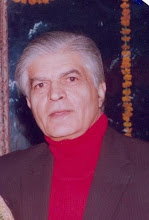Food provides nutrition to the body. The three basic nutrients are carbohydrates
fats and protiens.
These three elements are interlinked:
They exist together in nature as a mix in items of food.
They are the essential constituents of all our body cells.
People have selected over the ages, through tradition, and experience items
of vegetation, and animals flesh as food items.
These items are included in their diets.
They contain the three elements to provide energy, stimulate growth and meet development
Needs of the population.
NUTRITION Part 3a
ENERGY BALANCE AND SOURCE
Carbohydrates
Carbohydrates are the principal source of energy in diets all over the world.
They are present in plant foods – grains, legumes, vegetables and fruits.
Glycogen is the carbohydrate found in animal cells.
Carbohydrates can be:
Monosaccharide or simple sugars. (containing a single sacchaaride unit).eg;
- Fructose sugar, found in fruits
- Galactose sugar in milk
- Glucose, the simple sugar in vegetation and found in our blood is utilized by our
cells. Glucose is obtained from the breakdown of complex sugars.
A gram of sugar release approximately four calories.
Disaccharides containing two saccharine units Examples are:
- Sucrose (glucose + fructose) found in cane sugar, also obtained
From beet-root
- Lactose or milk sugar (glucose + galactose), is less sweet than
Sucrose
- Maltose, which is usually obtained by breaking down starch.
Polysaccharides which are complex carbohydrates yielding simple sugars
When broken down. Starch found in plant life is the most common complex
Carbohydrate available to us. Glycogen is an animal polysaccharide stored
In the liver and muscles of human beings and other animals.
Polysaccharides are broken down more slowly and they provide energy over a
Longer period of time. This form of energy substrate forms nearly 50 per cent of
Our diet.
Sources
Cereals – rice, wheat, corn
Legumes – beans, lentils, peas
Vegetables – potatoes, beetroot cassava
Requirement
Human beings require a minimum of 300 g of carbohydrate per day for a 2000cal diet
Any questions be sent to drmmkapur@Gmail.com you will receive a response
All posts are stored in archives fer access and review
Visit drmmkapur.blogspot.com for updates and fresh additions
Thursday, March 25, 2010
Subscribe to:
Post Comments (Atom)





No comments:
Post a Comment